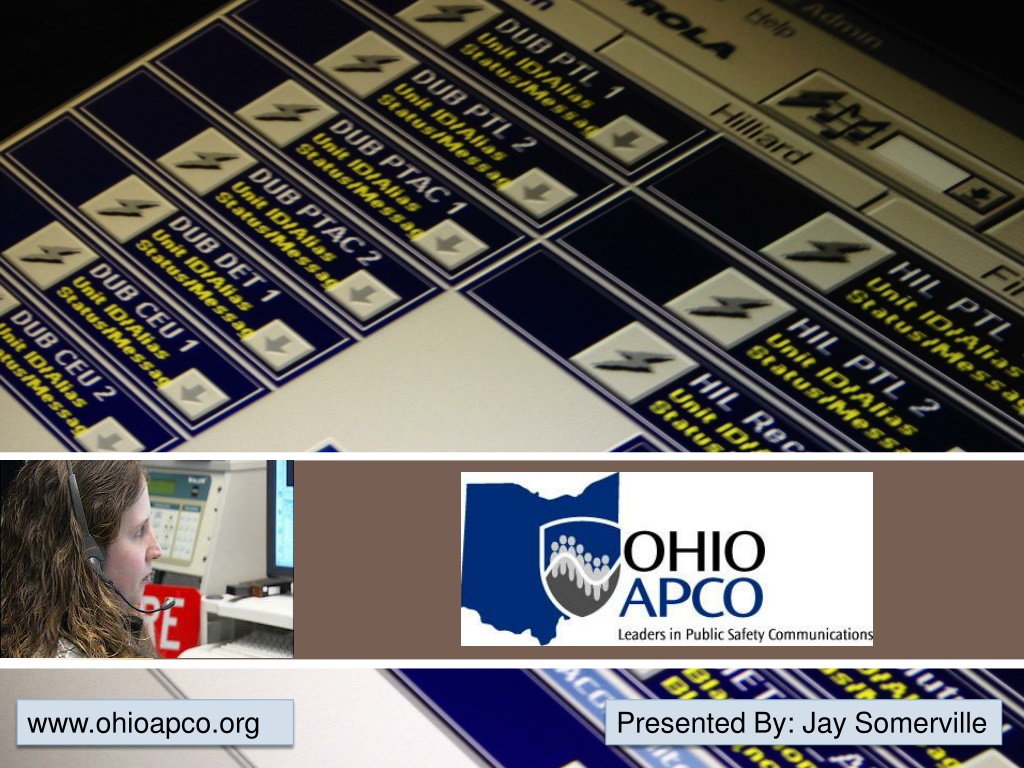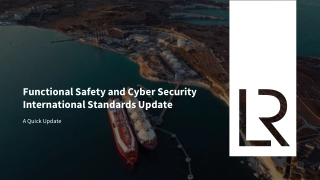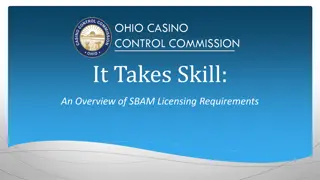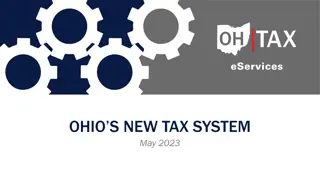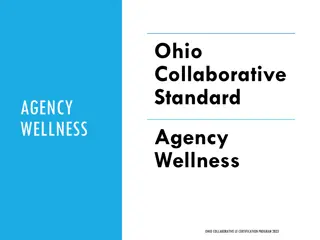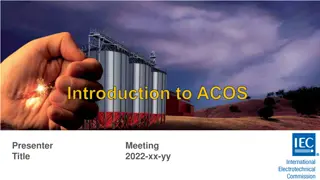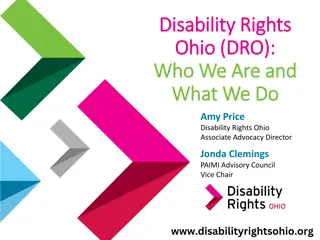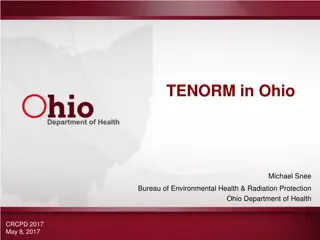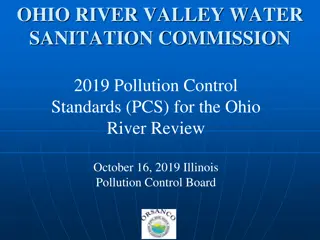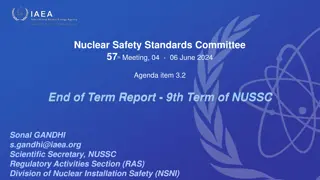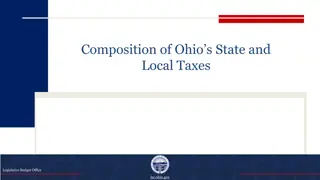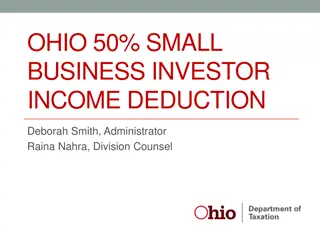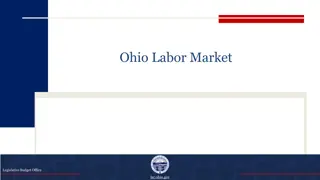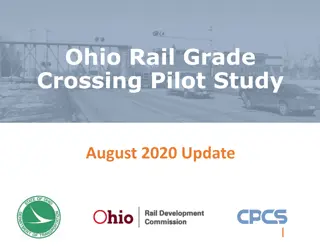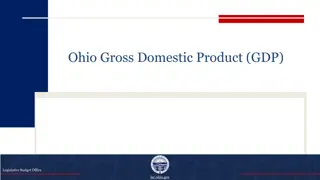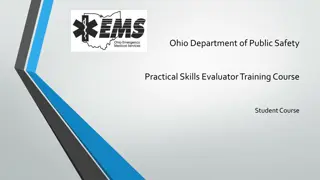Public Safety Dispatching Standards in Ohio
Explore the history and importance of public safety dispatching standards in Ohio, including definitions, operational rules, and the role of organizations like APCO International in setting industry standards. Learn about the development of standards for telecommunicators, PSAP operation, and wireless 9-1-1 calls, as well as the significant role of the Ohio Emergency Services Internet Protocol Steering Committee in establishing operational rules for PSAPs in the state.
Download Presentation

Please find below an Image/Link to download the presentation.
The content on the website is provided AS IS for your information and personal use only. It may not be sold, licensed, or shared on other websites without obtaining consent from the author.If you encounter any issues during the download, it is possible that the publisher has removed the file from their server.
You are allowed to download the files provided on this website for personal or commercial use, subject to the condition that they are used lawfully. All files are the property of their respective owners.
The content on the website is provided AS IS for your information and personal use only. It may not be sold, licensed, or shared on other websites without obtaining consent from the author.
E N D
Presentation Transcript
www.ohioapco.org Presented By: Jay Somerville
Standards for Public Safety Dispatching History of Dispatching Standards in Ohio Ohio PSAP Operating Standards APCO International - ANSI Standards CALEA Public Safety Communications Accreditation Other Standards in the Industry
Important Definitions PSAP Public Safety Answering Point Defined in ORC 128.01 Facility where calls are initially routed Wireless PSAP Directly receives 9-1-1 calls from wireless devices Must comply with PSAP Standards Eligible to receive state funding Dispatch Center Responsible for dispatching responders, but may not directly receive 9-1-1 calls
History of Standards in Ohio Minimum Training Standards for Telecommunicators Established in ORC 4742 November 1997 Addressed minimum training for new employees only Standards were not mandatory Not funded beyond 2002
Ohio PSAP Operational Rules Developed by the Ohio Emergency Services Internet Protocol Steering Committee (ESInet) in 2015 Initiated by the legislature in ORC 128.021 Mandatory for PSAPs that receive wireless 9-1-1 calls Serve as best practice standards for all other PSAPs Approved by JCARR on April 4th Effective two years after adoption Specific to call receiving and processing only; does not address dispatching responders.
Association of Public Safety Communications Officials Incorporated (APCO International) As an American National Standards Institute (ANSI)- accredited Standards Developer (ASD), APCO International is dedicated to ensuring public safety communications has a role in the development of standards that affect our industry. APCO s standards development activities have a broad scope, ranging from the actual development of standards to the representation of public safety communications in other standards development areas. https://www.apcointl.org/standards.html
Association of Public Safety Communications Officials Incorporated (APCO International) 22 nationally recognize standards for public safety communications. 10 operational standards 2 technical standards 10 training & competency standards
Association of Public Safety Communications Officials Incorporated (APCO International) Standard 3.103.2.2015 Minimum training standard for telecommunicators:
Association of Public Safety Communications Officials Incorporated (APCO International) Standard 3.103.2.2015 Minimum training standard for telecommunicators (Calltakers):
Association of Public Safety Communications Officials Incorporated (APCO International) Standard 3.103.2.2015 Minimum training standard for telecommunicators (Dispatchers):
Association of Public Safety Communications Officials Incorporated (APCO International) Standards are voluntary Assessment is available in two ways: CALEA Communications Center Accreditation APCO Training Program Certification
Association of Public Safety Communications Officials Incorporated (APCO International) CALEA Communications Center Accreditation Partnership between APCO & CALEA 212 standards Agencies file annual compliance reports CALEA conducts a bi-annual on site assessment Compliance with letter & spirit of the standards
Association of Public Safety Communications Officials Incorporated (APCO International) CALEA Communications Center Accreditation Available to Law, Fire, EMS & Consolidated centers Standard Categories include: Organization Direction & Supervision Human Resources Recruitment Selection & Promotion Training Operations Critical Incidents
National Emergency Number Association (NENA) Representing 9-1-1 professionals, focused specifically on 9-1-1 policy, technology, operations, and education issues. ANSI Certified Standards Developer 100+ technical & operational standards Close partner with APCO International
International Academies of Emergency Dispatch (IAED) Non-profit standard setting organization Provides protocols for Law, Fire and Medical call taking and dispatching Provides training, certification & accreditation Founded by Dr. Jeff Clawson http://www.emergencydispatch.org/
Recommendations: Recognize the ANSI Standards Process Utilize the existing, vetted standards available Recognize the CALEA Communications Accreditation as compliant Recognize IAED Accreditation as compliant Utilize subject matter experts Consider consolidating any standards with the existing PSAP Operational Standards (ESINet)
Resources Ohio 9-1-1: www.911.ohio.gov Ohio ESINet: www.911.ohio.gov/ESINet www.ohioapco.org Ohio APCO: Ohio NENA: www.ohionena.org www.apcointl.org www.nena.org www.calea.org www.emergencydispatch.com APCO Intl: NENA: CALEA: IAED:
